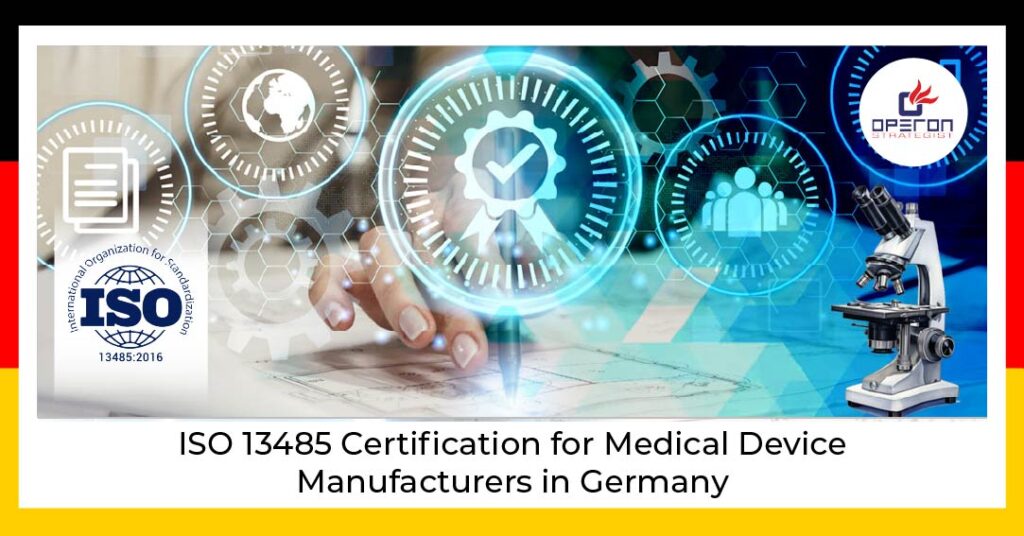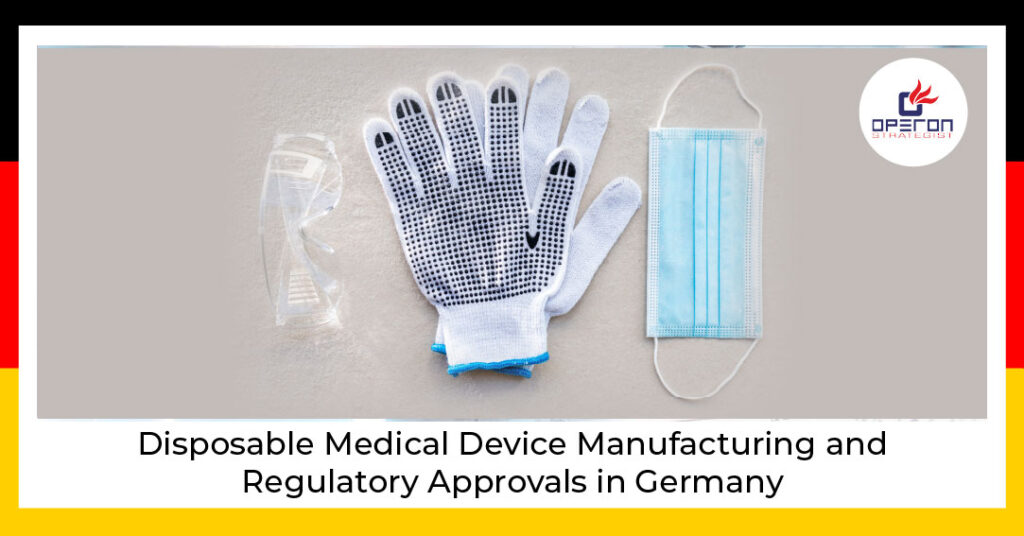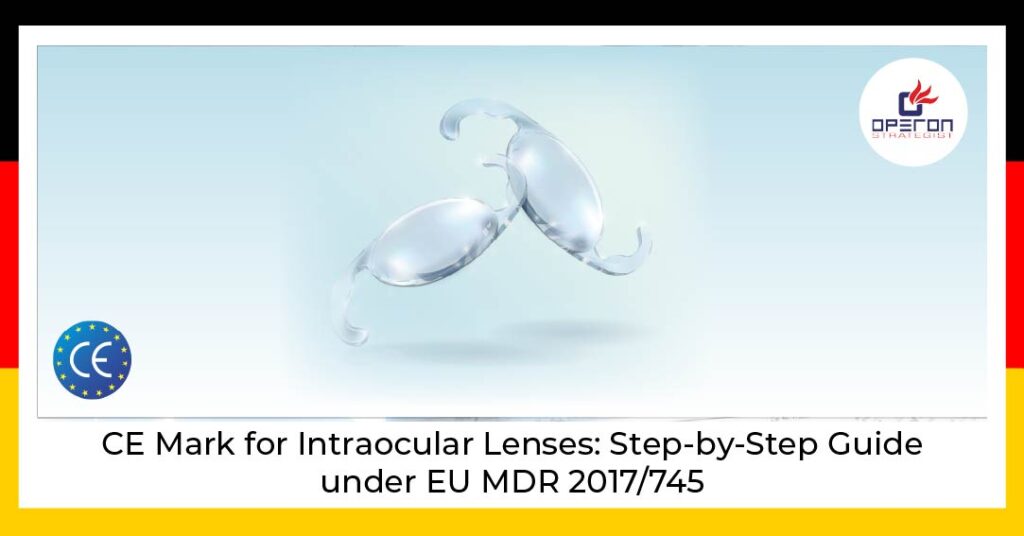Germany is one of the largest and most advanced medical device markets in Europe, recognized for its strong regulatory framework, precision manufacturing, and quality-driven culture. To maintain market trust and ensure compliance with European regulations, ISO 13485 Certification has become an essential requirement for medical device manufacturers operating in Germany.
This international quality management system (QMS) standard ensures that medical devices consistently meet both customer and regulatory expectations. For companies looking to design, manufacture, or distribute medical devices in Germany, achieving ISO 13485 Certification is a critical step toward operational excellence and regulatory approval under the EU MDR.
Let's Grow Your Business Together
What is ISO 13485 Certification?
ISO 13485 Certification is a globally recognized QMS standard developed specifically for the medical device industry. It sets out the requirements for establishing, implementing, maintaining, and improving quality processes that ensure product safety, efficacy, and regulatory compliance.
The standard focuses on the entire lifecycle of medical devices — from product design and development to manufacturing, installation, and post-market activities.
For German manufacturers, ISO 13485 Certification is not just a quality badge; it is a regulatory necessity closely aligned with the European Union Medical Device Regulation (EU MDR 2017/745).
Why ISO 13485 Certification Matters in Germany?
Germany’s medical device industry thrives on innovation, precision engineering, and strict adherence to international standards. Local and export manufacturers must comply with ISO 13485 to:
- Meet EU MDR Requirements: The EU MDR requires manufacturers to maintain a compliant quality management system based on ISO 13485. Without it, conformity assessment and CE Marking are not possible.
- Gain Market Access: Certified manufacturers can easily demonstrate compliance to notified bodies and regulatory authorities such as BfArM (Federal Institute for Drugs and Medical Devices).
- Enhance Credibility: Certification increases confidence among healthcare providers, suppliers, and international buyers.
- Reduce Operational Risk: Structured QMS implementation ensures consistent product quality, reducing errors, recalls, and audit findings.
For manufacturers in Germany — particularly SMEs and startups entering the EU market — ISO 13485 Certification lays the foundation for long-term growth and regulatory readiness.
Key Requirements of ISO 13485 for German Medical Device Manufacturers
To obtain ISO 13485 Certification, German medical device companies must establish and document their QMS according to specific clauses and requirements, including:
- Quality Management System Documentation
Develop and maintain a documented QMS that includes a quality manual, standard operating procedures (SOPs), and records that prove compliance. - Management Responsibility
Senior management must demonstrate commitment through leadership, planning, resource allocation, and regular management reviews. - Risk Management
Integrate ISO 14971 risk management principles to identify, analyze, and control potential risks associated with devices. - Design and Development Controls
Implement structured design processes that ensure traceability, verification, validation, and design transfer into production. - Supplier and Process Control
Define supplier qualification criteria, monitor supplier performance, and validate manufacturing processes to maintain product quality. - Corrective and Preventive Actions (CAPA)
Establish CAPA systems to identify nonconformities, determine root causes, and prevent recurrence. - Post-Market Surveillance (PMS)
Collect and analyze feedback from the field to continuously improve device safety and performance.
These elements collectively demonstrate that a manufacturer has the capability to deliver compliant and safe medical devices consistently — a core requirement under EU MDR.
Integration of ISO 13485 with EU MDR Compliance
ISO 13485 Certification and EU MDR are deeply interconnected. While ISO 13485 outlines the QMS framework, the EU MDR specifies product safety, performance, and documentation obligations.
In Germany, notified bodies such as TÜV SÜD, TÜV Rheinland, and DEKRA often require evidence of ISO 13485 Certification before beginning MDR conformity assessments. Manufacturers use their certified QMS as a foundation to compile technical documentation, clinical evaluation reports, and risk management files.
In short, ISO 13485 Certification acts as the backbone of MDR compliance — ensuring that every product released in the German or wider EU market meets the highest standards of quality and safety.
Local Certification Bodies and Auditing Organizations in Germany
Germany hosts several internationally recognized auditing and certification bodies that conduct ISO 13485 audits and issue certifications. Prominent organizations include:
- TÜV SÜD Product Service GmbH
- TÜV Rheinland LGA Products GmbH
- DEKRA Certification GmbH
- BSI Group Deutschland GmbH
- DNV GL Business Assurance Germany GmbH
These bodies are accredited by DAkkS (Deutsche Akkreditierungsstelle), ensuring that ISO 13485 audits in Germany maintain global credibility and compliance integrity.
Steps to Obtain ISO 13485 Certification in Germany
- Gap Analysis:
Evaluate existing processes against ISO 13485 requirements to identify areas for improvement. - QMS Implementation:
Develop documentation, SOPs, and processes aligned with ISO 13485 clauses. - Internal Audit:
Conduct an internal audit to verify system effectiveness before external assessment. - Management Review:
Ensure leadership evaluates audit findings, risks, and improvement actions. - External Audit:
Undergo certification audit by an accredited body such as TÜV SÜD or DEKRA. - Certification & Maintenance:
Once compliance is achieved, the certificate is issued and must be maintained through surveillance audits every year.
How Operon Strategist Supports ISO 13485 Certification in Germany?
At Operon Strategist, we assist medical device manufacturers in Germany with complete ISO 13485 Certification consulting — from QMS documentation and process implementation to internal audits and external certification preparation.
Our regulatory experts ensure your quality system aligns with both ISO 13485 and EU MDR requirements, enabling smooth certification and CE Marking processes. Whether you are establishing a new manufacturing plant or upgrading an existing system, Operon Strategist provides end-to-end support for compliance and business success.
Ensure MDR Compliance with ISO 13485 – Talk to Our Experts Today!
FAQ'S
ISO 13485 Certification is an international standard that defines the requirements for a quality management system (QMS) specific to medical device manufacturing. In Germany, it ensures alignment with EU MDR compliance and patient safety standards.
ISO 13485 Certification helps manufacturers in Germany demonstrate compliance with MDR, improve product quality, streamline documentation, and gain trust from notified bodies, distributors, and healthcare institutions.
Renowned certification bodies in Germany include TÜV SÜD, TÜV Rheinland, DEKRA, BSI, and DNV, which are accredited to perform ISO 13485 audits and issue certifications for medical device manufacturers.
ISO 13485 aligns with the EU MDR by covering key QMS elements like risk management, design controls, traceability, and post-market surveillance, ensuring regulatory consistency and product conformity across Europe.
Operon Strategist provides expert consulting support for ISO 13485 implementation, internal audits, documentation, and gap analysis, helping German medical device manufacturers achieve full QMS compliance and certification readiness.



